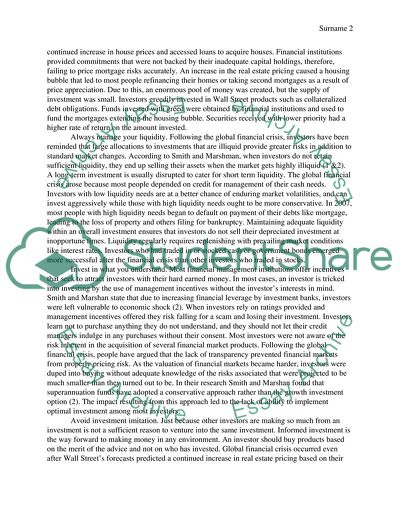"What investment lessons should be learnt from the global Essay. https://studentshare.org/macro-microeconomics/1866201-quotwhat-investment-lessons-should-be-learnt-from-the-global-financial-crisisquot
&Quot;What Investment Lessons Should Be Learnt from the Global Essay. https://studentshare.org/macro-microeconomics/1866201-quotwhat-investment-lessons-should-be-learnt-from-the-global-financial-crisisquot.


